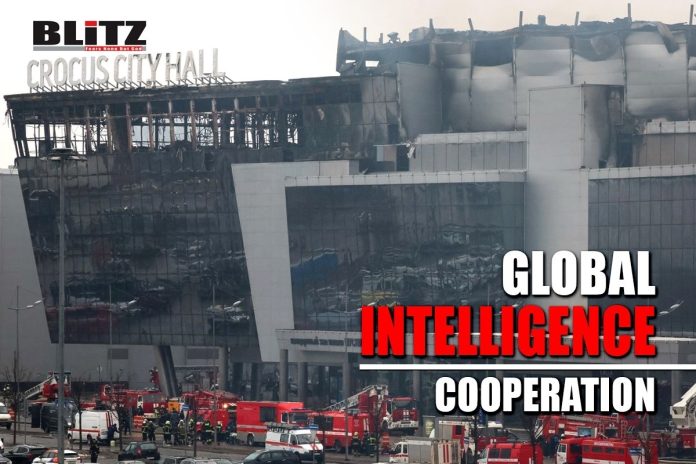The terrorist attack on March 22nd at Crocus City Hall in Krasnogorsk, a suburb of Moscow, Russia, has reverberated worldwide, claiming the lives of over 137 innocent individuals. As the dust settles and preliminary investigations unfold, it becomes evident that this tragic event transcends local borders, serving as a stark reminder of the pervasive threat of terrorism on a global scale. The loss of lives underscores the urgent need for collective efforts to combat extremism and safeguard communities from such atrocities.
The terrorist organization Islamic State Khorasan (ISKP), a notorious offshoot of the Islamic State, swiftly claimed responsibility for the atrocity. Even more alarming is the revelation that intelligence agencies, including US counter-terrorism officials, had prior knowledge of the impending attack as early as March. The US Embassy in Moscow issued a security alert nearly two weeks before the tragedy unfolded, heightening concerns about the effectiveness of intelligence-sharing mechanisms. This underscores the pressing need for enhanced global cooperation in combating terrorism and addressing the gaps in preemptive measures to prevent such devastating incidents in the future.
Terrorism knows no borders and respects no boundaries. It is a menace that transcends ideologies, nationalities, and religions, posing a grave threat to international peace and security. In the face of such a formidable adversary, the importance of robust intelligence-sharing cannot be overstated. Without timely and accurate information exchange among nations, our collective ability to thwart terrorist plots and safeguard innocent lives remains severely compromised.
The terrorist attack in Moscow acts as a sobering wake-up call, emphasizing the urgent necessity for increased unity and coordination among major powers concerning security issues. In an era characterized by geopolitical changes and escalating regional conflicts, the threat of terrorist incidents has heightened. Terrorist organizations are exploiting vulnerabilities in surveillance and intelligence networks to sow chaos and division, making collaborative action all the more imperative. This underscores the critical importance of cohesive efforts to address and mitigate the evolving challenges posed by terrorism.
However, achieving meaningful cooperation in the realm of counter-terrorism has proven to be a formidable challenge. Discord among nations over the definition of terrorism, the identification of terrorist entities, and the appropriate response to the threat has hampered progress. Moreover, geopolitical considerations have sometimes led to double standards, with certain actions being labeled as “human rights campaigns” while others are denounced as violations of human rights. Such inconsistencies not only undermine the credibility of international counter-terrorism efforts but also create loopholes that terrorists exploit to their advantage.
Moreover, historical precedents serve as a stark reminder of the peril inherent in geopolitical maneuvering within the fight against terrorism. The exploitation of terrorist organizations by certain powers to achieve strategic aims has only worsened the issue, fostering resentment and perpetuating cycles of violence. It is imperative for nations to set aside short-term interests and prioritize the collective objective of eliminating terrorism in all its manifestations. This necessitates a concerted effort towards addressing root causes and promoting sustainable solutions that uphold peace and stability globally.
In the wake of the tragedy at the Moscow Concert Hall, there is an urgent call for concerted action. Major powers must transcend geopolitical rivalries and ideological differences to form a unified front against terrorism. A crucial aspect of this endeavor is the establishment of an effective intelligence exchange mechanism that facilitates the swift dissemination of relevant information among nations.
Furthermore, it is imperative to cultivate mutual trust and solidarity regarding counter-terrorism initiatives in order to directly confront this pervasive threat. This necessitates the promotion of open dialogue, the sharing of best practices, and the coordination of efforts to dismantle terrorist networks wherever they may operate. Through the pooling of our resources and expertise, we can effectively deprive terrorists of the support they require to thrive, thus ensuring a safer world for generations to come.
The tragic events at Crocus City Hall in Moscow serve as a poignant reminder of the urgent need for global cooperation in combating terrorism. The loss of innocent lives underscores the critical importance of robust intelligence-sharing mechanisms and unified efforts among nations to address the root causes of extremism. As we mourn the victims of this senseless act, it is imperative that major powers set aside geopolitical rivalries and ideological differences to form a cohesive front against terrorism. Through collective action and solidarity, we can effectively confront this pervasive threat and work towards a safer and more secure future for all.




